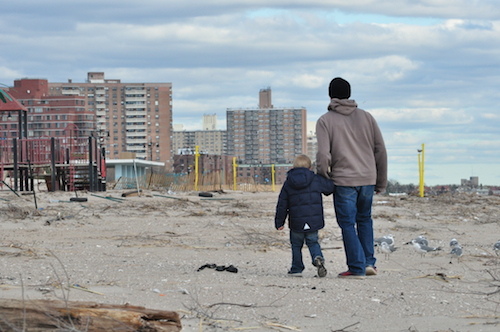Intentionally creating culture through long term travel
Have you ever wondered if the culture that surrounds you has more of an influence on your kid than you do? Have you ever muttered the phrase “I guess it’s just what kids do these days” out of frustration? Have you ever encouraged, pushed, or flat out made your kid do something because “someday society will demand this of you”, even though you secretly thought the cultural norm you were pushing was, well, dumb?
People often wonder aloud whether traveling long term with children is “right”. Will they miss their friends? Will they lack “roots”? How will they receive an education? Is it safe? These are valid questions- and believe me, every single one has an answer as unique as the family answering it. Some families travel for educational purposes, some for financial freedom, some to gain more time with their families.
But what about traveling with the (partial) goal of intentionally shaping the culture our children are raised in? How many families see this as their driving goal? In the traveling world, a lot.
It might sound a little crazy at first thought but really, when you think about it, every parent, every adult, every person who interacts with a child, does it everyday- usually without even thinking about it. Culture is what you get when experiences, language, knowledge, beliefs, interactions, expectations, religious views, biases, prejudices, social norms, values, educational ideals, and a whole host of other things accumulate and become internalized within a society. Culture is the symbolic agreement between a group of people for how they would like to be and do. So when we choose our kids’ school, encourage a sport or instrument, or decide whether to join that country club, we are also choosing which parts of our culture we emphasize to our children.
Traveling families want to do this too. Just…. differently.
There are grand symbols of our culture that most people can identify from a mile away. Varied things like McDonald’s and the burka are manifestations of a culture. But there are also more subtle expressions of our culture. The words we use when talking about girls. The clothes we wear to the office, religious gathering, or party. The skin colors of our models. The products we push on our children. The language we use when discussing violence against women. The classes we encourage kids to take in school. The way we talk about foreigners and immigrants.
Every society, large or small, has a culture. There is culture on a grand scale- like American culture- and culture on a more individualized scale- like a family culture. Some of us don’t want to passively accept the culture we were handed. Some of us what to intentionally choose the culture we participate in- and the culture our children internalize.
We aren’t just talking about choosing one country’s culture over another. We’re talking about looking at how every interaction and choice we make communicates something to our children- whether overt or covert. Travel itself can be key in developing culture. Choosing to travel long term with children might seem scary to some but it communicates a belief in true, personal freedom, an interest in getting to know people who are different from us, and a daily need for creativity to our children. Without us even saying anything, it informs our children that learning can happen anywhere, that you really CAN do absolutely anything if you want it bad enough, and that there are many more ways to go about life than the way we do it in our home neighborhood.
You might be thinking, “this is great for teenagers, but what about a two year old? They won’t even remember.” If you wonder how much of our cultural adaption is unconscious acquisition, talk to anyone who has left their home country for several months or more. Ask them about “re-entry”. Ask them how coming back to the land they grew up in felt; how much they forgot; how much they needed to re-adapt; and how surprised they were by all of this. The next time your two year old repeats a phrase you…ahem… would rather they not, ask yourself if you consciously taught them to use those colorful words with such perfect timing or if they absorbed it without you realizing. And consider this, if nothing matters in a child’s development until they are old enough to remember it, then why do you talk to, play with, and otherwise lay positive groundwork with your baby?
Kids absorb like sponges and, in fact, so do adults. Internalizing culture is no different. We can’t guarantee that a kid absorb exactly what we want them to, no matter where we are! But we can seek to shape the greater culture that we expose them to. A McDonald’s on every corner might be a bit less concerning to a parent if their kid happily eats crickets, curry, and coconut 364 days out of the year.
Us long term travelers know a secret. We know that every minute of every day does actually count when it comes to the acquisition of culture. And we know that by creating space where the very act of doing, of traveling, is working to shape their family culture that we can sweat the small stuff a little less. And that isn’t so crazy, is it?




Category: Ethics